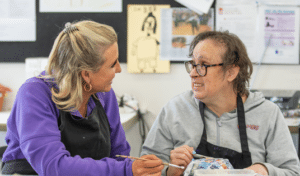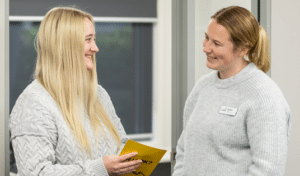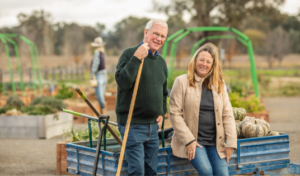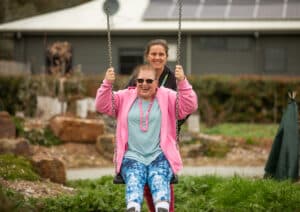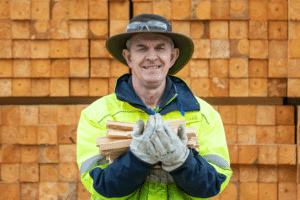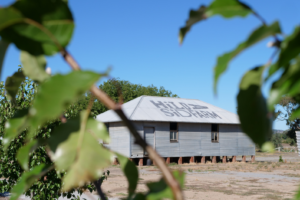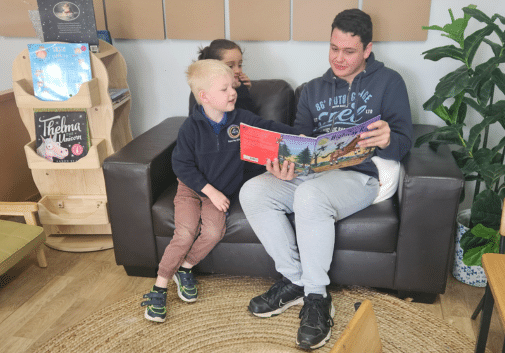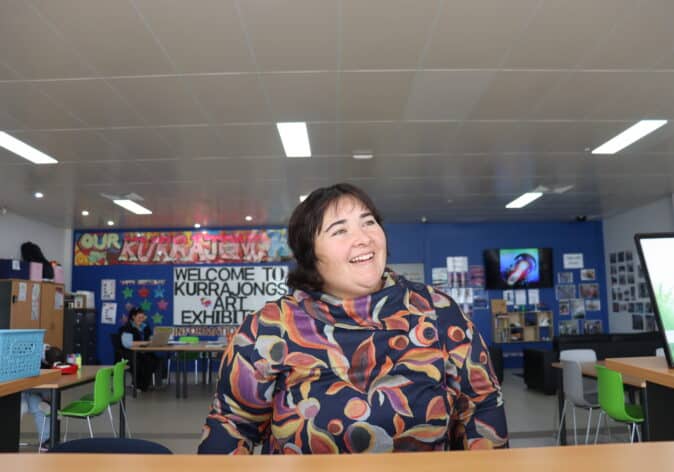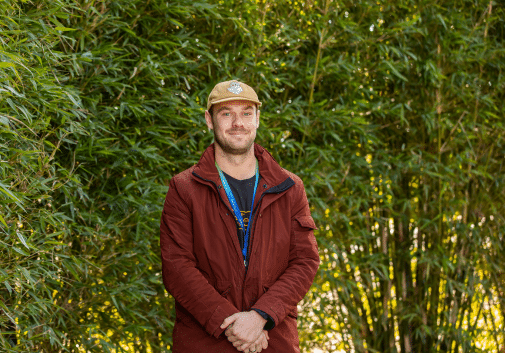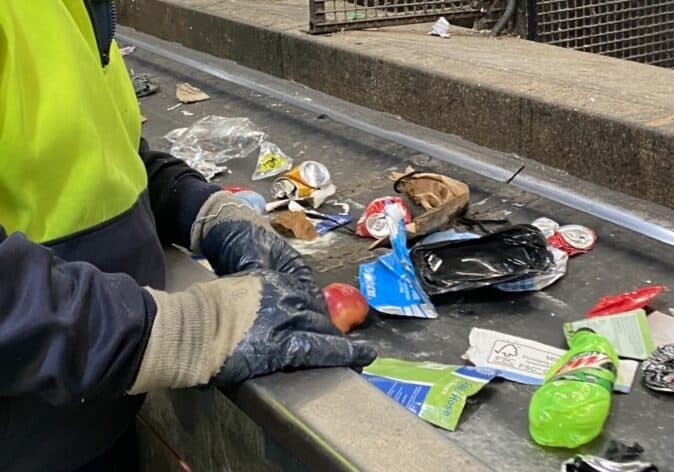Over the years, Kurrajong has done many things to help the community around us. One of the first things Kurrajong did to help the community when it was formed was The Minding Centre which opened in 1957. This centre was open from 10am to 3:30pm and was staffed by volunteers until funds could be raised to employ a trained teacher.
The centre’s main aim was to give the mothers of children with a disability a break and to give them an opportunity to have just one day to do what they wanted. The parents also benefited from fundraising activities, particularly wood drives.
When the Jaycees building at Lord Baden Powell Drive was built, it allowed for a school to be made for children with disability. The completed building had a main assembly and general activity rooms, a kitchen equipped with a stainless-steel sink, electric stove, refrigerator and copious cupboards. It also had a sick bay, toilets, an office and an arts and craft room with work benches.
Then from 1966 to 1983, two schools were constructed side by side at Lord Baden Powell Drive (Willians Hill). This included the Kurrajong Association School, and the school ran by the NSW Department of Education. While these schools were running, students who attended had the chance to participate in annual concerts and Christmas parties, carnivals and swimming lessons with an honorary instructor John Nest. There was also a sports carnival held from 1966 that was held every few years at Eric Weissel Oval in Wagga Wagga.
In the 1960s and 1970s people with a disability still lived at home or were placed in institutions where they were isolated from the rest of society. From the beginning The Society for the Welfare of Retarded Children had aimed to construct a hostel and by the end of the 1970s children, adolescents and adults with disabilities were moving into their own houses or units with the support of staff from Kurrajong Waratah.
One of The Society for the Welfare of Retarded Children’s main importance was getting people with a disability out and about and doing things. From the 1970s, the children and adults were taken to Tumut and later Borambola for weekend camping trips. They were also occasionally supported to attend concerts and circuses. Annual camps at Camp Hudson at the Goobagandra River near Tumut and Borambola Fitness Camp proved to be a relaxing and fun time for everyone involved. 10 years later, people with a disability became involved in activities of their choice in the community such as dance, bowling, cricket, music, karate, football and so much more.
Earlier in the 1960s the adults of Kurrajong were provided with activities such as weaving, basketry and other handicrafts and the making of wire coat hangers. Apart from the recycling of newspapers, a number of other jobs were obtained for the adults to work, such as folding and inserting advertising brochures into envelopes and painting posts for the PMG.
In the 1980s, a number of supported employment ventures were being established to provide more options of employment for people with intellectual disabilities. The ironing service known as The Clothes Basket was introduced in 1981. In 2004 there were two supervisors, nine employees, and on average, 110 baskets of clothes were ironed weekly. The Clothes Basket is now known as Kurrajong Laundry, which is located in Narrandera and Leeton. Kurrajong Laundry provides linen hire and laundering services for motels, hotels and clubs. They also offer an ironing and laundry service for the local residents, with pick-up and delivery available. Kurrajong Laundry employs over 19 people with disability along with a team of Supervisors and Managers and can do up to 50 baskets on the days they are open.
Clippings’ garden service commenced in 1986 with a work crew of four people with disability and a Vocational Training Officer based at Kurrajong Complex. However, in the 1990s, lawn mowing and ground maintenance became very competitive, and it became more difficult to find employees with a disability who were able to do this physical work. The service was reshaped and combined with the existing internal maintenance section at Kurrajong Waratahs’ main site on Willians Hill; this is now known as Kurrajong Property Service. Kurrajong Property Service employs 6 people with disability in Wagga Wagga along with a team of Supervisors and Managers. They provide a variety of services for businesses, organisations and the community, including NDIS clients.
Culinary Capers, a catering service commenced in 1987; it began by running the dining room as a canteen and preparing for luncheons, meetings and parties within the general community and sol snack food for workplaces such as schools and factories as well as through commercial distributors. In 2005 there were ten employees at Culinary Capers with one supervisor and two part-time assistants; they dealt with an average of 950 catering orders. Now Culinary Capers is, known as Kurrajong Catering who employ 17 people with disability along with a team of Supervisors and Managers. They cater for business, community and personal events while delivering lunches and coffee orders for Kurrajong Services within Wagga Wagga. Kurrajong Catering also sells their biscuits to local supermarkets such as FoodWorks and private customers.
Kurrajong Catering branched out to Deniliquin and is known as Kurrajong Café there. Kurrajong Café provides catering services for the TAFE NSW Canteen, businesses, organisations and the community. On a weekly biscuit run, they also sell biscuits and slices to the community.
Kurrajong Recycling began as a fundraising venture in 1962, but by 1970 a regular door-to-door collection scheme was being conducted. The boys collected the paper with the assistance of teachers and other volunteers. Now Kurrajong Recycling provides a supported workplace for around 90 supported employees, along with a team of Supervisors and Managers. They provide secure document destruction, mixed recycling collection and a paper and cardboard collection service for Wagga Wagga businesses and businesses within an hour of the facility. They also process household recycling for six local council areas, including Griffith and Narrandera.
The women’s auxiliary was formed in 1957, soon after the formation of The Society for the Welfare of Retarded Children. It became known as the Kurrajong School Women’s Auxiliary; later, the name was changed to Kurrajong Auxiliary in an unsuccessful attempt to attract fathers to join.
In the 1960s, The Auxiliary held used clothing sales, street stalls, card parties and film evenings. It also catered for various functions, including weddings, conferences, sheep sales, picnic days and trade fairs. Fetes were also frequently organised with stalls selling produce, cakes, drinks, sweets and fancy goods.
Another way Kurrajong has helped the community is through Miss Wagga Wagga, which The Auxiliary occasionally supported the entrants.
Related Posts
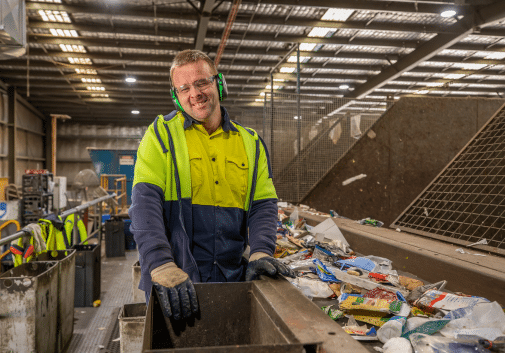
Supported Employment a Success for Brian
Kurrajong Recycling supported employee success story Brian Reasin

